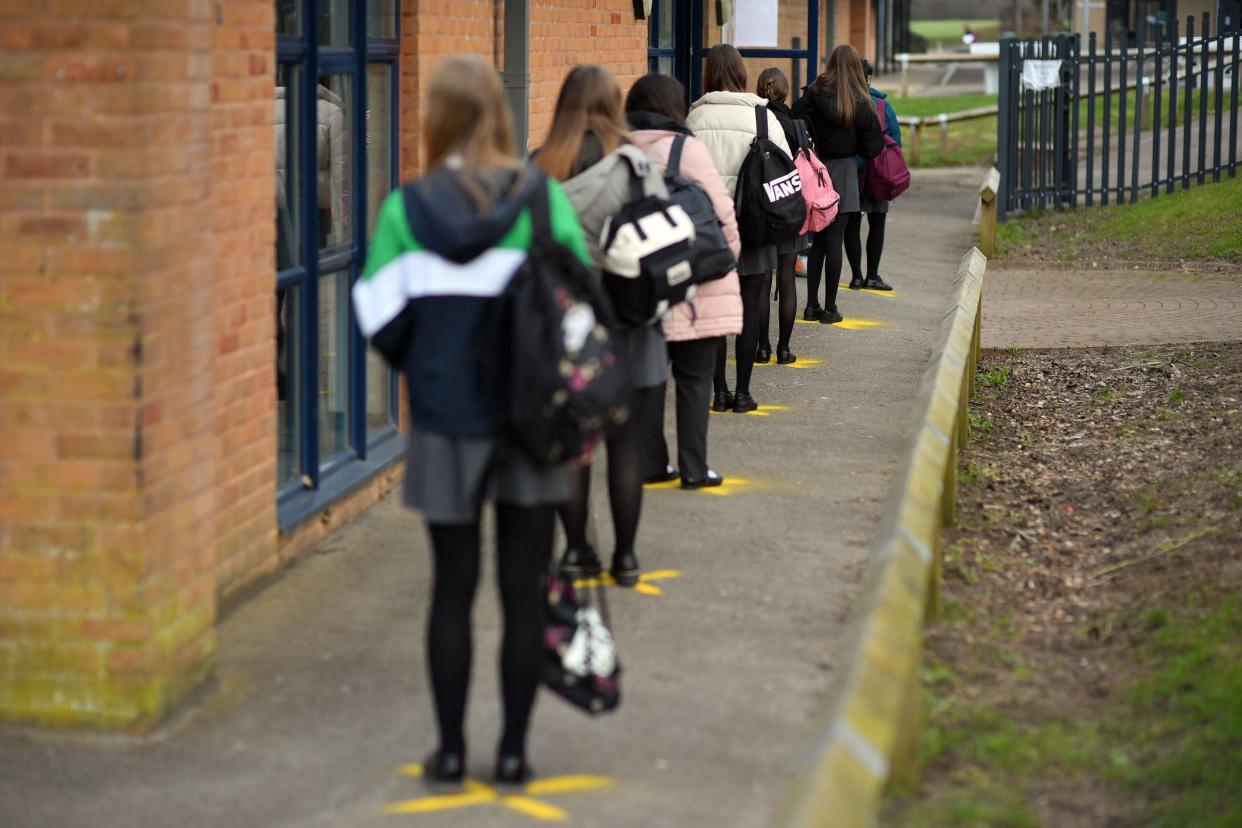If children want the vaccine, let’s give it to them – Covid has disrupted their lives for long enough

I wonder if anyone from the Joint Committee on Vaccination and Immunisation has tried asking young teenagers how they feel about being denied a Covid jab. Because I have and the answer, from my admittedly courteous 13-year-old son, is: “Quite cross.”
Safe to say, the decision by the JCVI not to vaccinate the vast majority of children against the disease that has come to define their life is not going down well with anyone in my house. Or elsewhere, it seems. A survey by the Office for National Statistics found that almost 90 per cent of parents in England would favour giving their children a Covid vaccine.
I do realise that the JCVI members are the experts advising the government and that my son is a child with barely two years of secondary school biology under his belt – but perhaps they’d like to remember how many science lessons he’s already missed thanks to the pandemic.
New guidance last week by the Department for Education made it clear that schools must plan for having to deliver remote education in case it becomes necessary in the autumn. Which makes a third successive academic year set to be disrupted, in case anyone’s ability to add up has taken a knock, what with all the months spent at home.
I’m glad some children will get jabbed: those who are almost 18, those who are vulnerable to Covid, or those who live with people who are clinically vulnerable. But after everything children – especially children – have endured, this doesn’t go far enough for me.
In the US, any child aged 12 and up can wander into a pharmacy (presumably with an adult) and get jabbed: one UK-dwelling American acquaintance back in Washington DC on vacation got her 13-year-old vaccinated last week. French children, aged 12 and up, are also eligible (one of my son’s French friends, back there this summer, will also be getting his shot). Spain, Switzerland and Singapore are among the other countries either already vaccinating or about to be vaccinating teenagers – and that’s just the countries starting with “S”.
Here, the UK medicines regulator approved the BioNTech/Pfizer vaccine as safe and effective for children aged 12-15 in early June. (Vulnerable over 16s have always been able to get a Pfizer shot.) And yet, regular children, like my son, won’t be rolling up their sleeves any time soon. So why not? (Vaccines Minister Nadhim Zahawi has said the government will keep the situation “under review”.)
The argument most often trotted out against vaccinating children is that most get mild symptoms of Covid-19, if any, meaning they bear the risks of vaccination for little or no benefit to themselves. And truly, the sole saving grace for many is that children have been spared the worst of this disease. But some do suffer. Research led by the University of Liverpool and published last week in The Lancet Child and Adolescent Health found around one in 20 of those children hospitalised with Covid-19 develop brain or nerve complications linked to the viral infection.
Yes, vaccines come with their own risks, namely myocarditis or pericarditis, two types of heart inflammation mostly affecting young males that are linked to mRNA vaccines, such as those made by Moderna and BioNTech/Pfizer. Wired magazine recently reported that the US Centers for Disease Control and Prevention (CDC) has confirmed 594 cases of vaccine-related myocarditis in under 30s, including 12-18 year olds. But most myocarditis cases rapidly resolve after a few days of anti-inflammatory treatment. For comparison, that leaves more than six million 12-18-year-olds across the US who’ve been jabbed and are totally fine.
One suggestion by some scientists is to give teens one dose instead of two: their immune systems work better than adults, plus the risk of myocarditis is higher after the second shot. This would help to address the ethical issue of whether young people in the UK should have priority over those at higher risk in countries still struggling to embark on any sort of vaccination programme.
The JCVI has yet to publish its advice on how it came to its decision, but how about this for a suggestion? Members individually make themselves available to be quizzed by kids wondering why they get to be part of a “herd immunity” experiment. I’ll start by volunteering my son, not least because his end-of-year biology report recommended he recap how the heart functions before starting Year 9. Plus he could tell them how cross he is about potentially missing more lessons if infections continue soaring into September.
Read More
UK Covid-19 vaccinations: Latest figures
Young people are not immune from the government’s reckless policies
Seeing crowds of people dancing at nightclubs feels like a vision of A&E wards in six weeks’ time

